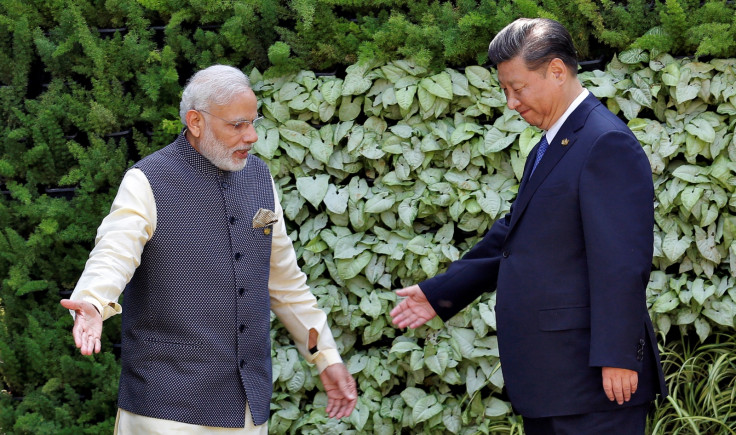China insists it will still patrol Doklam as India announces mutual agreement to end border stand-off
Both the sides have agreed to the 'expeditious disengagement of border personnel at the face-off site at Doklam', India said.
China has insisted that it will continue to exercise its territorial sovereignty even as India announced that both the sides have mutually agreed to withdraw troops from their disputed shared border, bringing an end to a lengthy stand-off.
Both the countries have agreed to "expeditious disengagement" of troops to de-escalate tensions in Doklam, a contested region in the Himalayas where the frontiers of China, India and Bhutan meet, India's Ministry of External Affairs said on Monday (28 August).
India's announcement seems to have come days ahead of the expected visit by Indian Prime Minister Narendra Modi to China for a Brics (Brazil, Russia, India, China, and South Africa) summit in September.
"In recent weeks, India and China have maintained diplomatic communication in respect of the incident at Doklam," a statement from the Indian ministry said. "On this basis, expeditious disengagement of border personnel at the face-off site at Doklam has been agreed to and is on-going," it added.
Although the Indian ministry's statement indicates that the withdrawal is part of a mutual agreement, it is unclear if China has already started withdrawing troops from the Doklam tri-junction.
Chinese foreign ministry spokesperson Hua Chunying only confirmed the withdrawal of Indian troops from the disputed region and was silent on any Beijing action.
"China has confirmed that Indian troops and equipment have all withdrawn to the Indian side of the border area in Doklam on Monday afternoon. China will continue to exercise its territorial sovereignty in accordance with historical conventions," Hua said at a regular press briefing on Monday.
"The Chinese government highly values its friendly relationship with India. We hope India can fulfill the historic agreement on the border and safeguard the stability of the border area with China," Hua added.

Chinese and Indian troops have remained locked in a face-off since the first fortnight of June when, according to Delhi, Beijing tried to extend its border by building a road through the disputed Doklam plateau.
Delhi opposed the road construction along the border that belongs to Bhutan, but claimed by China. China refers to the region as Donglang.
However, soon after the stand-off began, the Chinese foreign ministry said it was the Indian border guards who had crossed the border and "obstructed normal activities" of their frontier troops in the Donglang area.
Both the sides have since been calling on each other to immediately withdraw troops.
While such military confrontations were not new between the nuclear-armed neighbours, both the sides were relatively successful at maintaining peace with each other. The difference this time was that the rhetoric from both sides kept heating up instead of cooling down.
According to Indian media reports, Beijing had reportedly insisted on the unilateral pulling out of Indian troops, while Delhi was apparently firm that it should be mutual.
Despite strident threats from the Chinese media and diplomats, India maintained that it would seek to resolve the tensions only through diplomatic channels.

Delhi-based CNN News18 reported that the Modi government had reportedly conveyed through back channel talks that the prime minister could give the Brics summit in China a miss if the border stand-off was not resolved.
According to the Brics charter all five member states must participate for a summit to take place.
The Brics summit in Xiamen in China "would only be possible if both sides prepare well for it in advance", National Security Advisor Shiv Shankar Menon told the Indian Express.
© Copyright IBTimes 2025. All rights reserved.





















